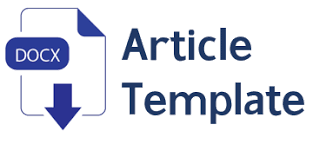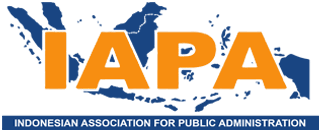THE ROLE OF THE DIGITALIZATION OF LEARNING MEDIA ON THE QUALITY OF LEARNING
DOI:
https://doi.org/10.30997/jsh.v13i2.4989Keywords:
digitalization, education , information technology.Abstract
The school functioned as a place to educate and forge students into complete individuals. Schools, through existing facilities, must be able to prepare students to be competent in the digitalization era. Efforts to improve the quality of learning during the current pandemic must be in the process of improving and updating the learning media used. This study aims to determine the role of digitalization of learning media on the quality of learning at SDN Bronggang Baru. The method used in this study is qualitative, with a focused interview approach carried out through several stages. The observations were made to obtain an initial picture regarding digitization at SDN Bronggang Baru. Based on these observations, a literature study was conducted to provide a theoretical analysis of digitalization in schools based on previous research and expert opinions. Data collection and processing are done based on the results of observations and literature studies that have been performed as well as the effects of focus group discussions. This research shows that the output of digitalization of learning media implemented at SDN Bronggang Baru positively impacts the quality of learning for the entire academic community in the school environment. Digitizing education makes the transfer of information easy and fast. Services to students can be maximized with the digitalization of this education. The digitalization of education can be the forerunner to realizing an intelligent school with an insight into the future.
References
Håkansson Lindqvist, M., & Pettersson, F. (2019). Digitalization and school leadership: on the complexity of leading for digitalization in school. International Journal of Information and Learning Technology, 36(3), 218–230. https://doi.org/10.1108/IJILT-11-2018-0126
Hermawansyah. (2021). Manajemen, pendidikan , berbasis, Digitalisasi, covid -19. Jurnal Studi Pendidikan, 28–46.
Kementerian Pendidikan dan Kebudayaan, R. (2019). Digitalisasi Sekolah: Mendayung Generasi Indonesia Maju. 1–36.
Khomariyah, K. N., & Afia, U. N. (2020). Digitalisasi Dalam Proses Pembelajaran Sebagai Dampak Era Keberlimpahan. ISoLEC Proceedings, 4(1), 72–76.
Khomsin. (2004). Buku Ajar Pemetaan Digital. Program Studi Teknik Geodesi FTSP-ITS.
Kuni, T. (2001). Digital Libraries. The MIT Press.
Rahman, R., Kondoy, E., & Hasrin, A. (2020). Penggunaan Aplikasi Quizziz Sebagai Media Pemberian Kuis Dalam Meningkatkan Motivasi Belajar Mahasiswa. JISIP (Jurnal Ilmu Sosial Dan Pendidikan), 4(3), 60–66. https://doi.org/10.36312/jisip.v4i3.1161
Rosenberg, M. J. (2001). E-Learning: Strategies for Delivering Knowledge in the Digital Age. McGraw-Hill.
Subroto, G. (2009). Perpustakaan Digital. Pustakawan Perpustakaan UM, 10(2), 1–11. http://library.um.ac.id/images/stories/pustakawan/kargto/Perpustakaan Digital.pdf
Tunmibi, S., Aregbesola, A., Adejobi, P., & Ibrahim, O. (2015). Impact of E-Learning and Digitalization in Primary and Secondary Schools. Journal of Education and Practice, 6(17), 53–58.
Yuanta, F. (2020). Pengembangan Media Video Pembelajaran Ilmu Pengetahuan Sosial pada Siswa Sekolah Dasar. Trapsila: Jurnal Pendidikan Dasar, 1(02), 91. https://doi.org/10.30742/tpd.v1i02.816
Downloads
Published
How to Cite
Issue
Section
License
Copyright (c) 2022 Jurnal Sosial Humaniora

This work is licensed under a Creative Commons Attribution-ShareAlike 4.0 International License.
Authors submitting manuscripts must understand and agree to copyright the manuscript of the article was transferred to OJS Djuanda University. All rights reserved. The copyright release statement for the Journal of Social Humanities is set out in the Agreement Transfer of Copyright. This work is licensed under Creative Commons Attribution-ShareAlike (CC BY-SA) version 4.0 where Author and Readers can copy and redistribute material in any media or format , as well as mixing, modifying and building materials for any purpose, but they must provide appropriate credit (citing articles or content), provides a link to the license, and indicates when changes have been made. If you mix, modify, or develop, the materials you have to distribute your contributions are under the same license as the originals.
















